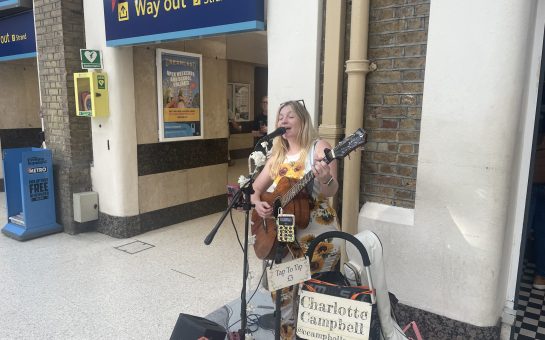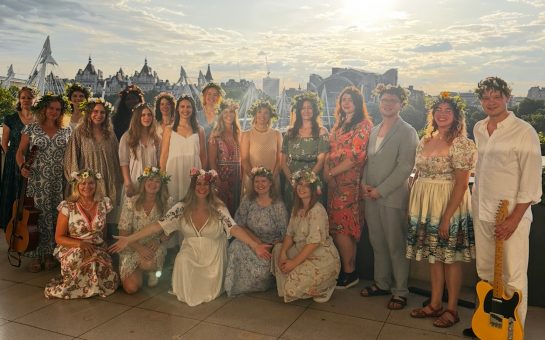KT Tunstall is to play the Windmill Brixton after raising over £2000 as part of a nationwide campaign to save independent music venues.
The Passport: Back to our Roots project has raised money through a ticket draw for shows, including this one which will take place once Covid-19 restrictions have been lifted.
The 45-year-old musician has raised £2,193, all of which will directly support the Music Venue Trust Crisis Fund and the Windmill, a venue central to south-London’s burgeoning Punk scene.
It is credited for the development of Shame, Black Midi and Goat Girl – artists who have all broken the top 40 of the Album charts in the past three years – and Tunstall stressed the influence of these venues on the career-trajectory of young musicians.
She said: “Independent venues provided me as a young person with a sense of optimism. They were the route to making a living as an artist. Without these venues there is no route.
“They are the places where you begin, they are where you cut your teeth, they are where you make friendships.
“Now, the new musicians who are about to go on tour or about to release music will suffer enormously from what is happening.”
However, it is not just the artist that are suffering, nor is it simply the buildings they play in that are at risk.
To Tunstall, fans will lose a crucial source of escapism whilst the wider community will suffer if they are no longer able to congregate at these venues.
She explained: “Music’s eco-system is deep and wide and complex, and a lot of people benefit from it.
“Often, they are the place where people go to have a bad week turned around. Whether it’s an act you have never seen, or your favourite band – going to see a gig can lift you from the challenges you’ve had.
“Independent venues are providing the same service as an arts centre or a youth club – the community hugely benefits.
“That’s why these venues should be given business tax breaks as community centres – this is something that I champion through being an ambassador for the Music Venue Trust.
“These venues are packed with specifically skilled people that have learnt what they do on the job for years – venue owners, staff, production managers, stage managers, sound engineers, lighting engineers – the venues can’t run without them.
“It’s a worthwhile pursuit to help the public at large realise that the 200,000 mostly freelance workers in the UK are suffering mentally because of their freelance nature – they are not necessarily eligible for some of the Government support that’s out there.”
So, what now? Like many industries, the existential threat live music is facing is critical.
Tunstall admits as much. Yet she is not without hope.
She said: “Being completely honest it’s going to take quite a long time to recover. I don’t think it’s going to be ‘business as usual’ next year.
“Even when it is more normal, we’re going have a tsunami of musicians and crew as well, desperately in need of money, who will all want to get back to gigging at the same time. It’s going to be really bumpy, and not everyone is going to get a job.
“Musicians have got to get creative – that’s the light at the end of the tunnel.
“You can slag social media off as much as you like but at the moment that’s the only thing musicians have in terms of communicating with fans are trying to share music.
“There always has been there always will be good music coming through. It’s a force of nature that will never change.”
You can find out more information here.
Featured image credit: Holly Whitaker




